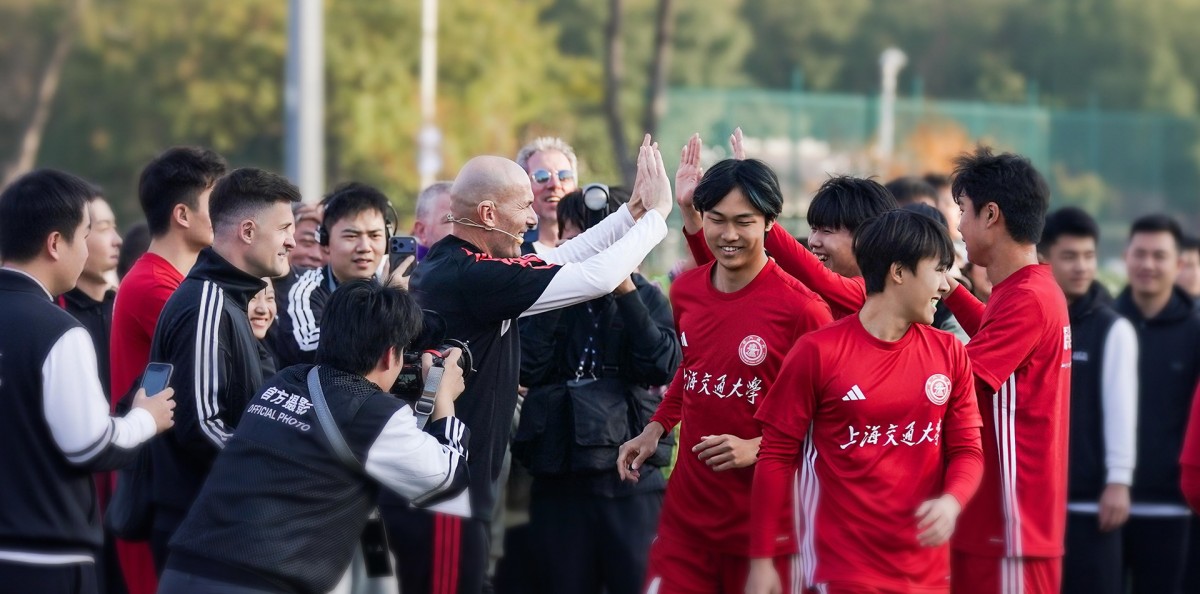ATHENS, 30 October — The “China–Greece Joint Laboratory for Cultural Heritage”(hereafter “Joint Laboratory”), co-founded by the National Centre for Scientific Research “Demokritos” (NCSR “Demokritos”) and Shanghai Jiao Tong University (SJTU), was formally inaugurated at the Demokritos Conference Centre in Athens.
The opening ceremony was attended by H.E. Lai Bo, Chargé d’affaires of the Chinese Embassy in Greece; Mr Anastasios Gaitanis, Secretary-General for Research and Innovation of the Greek Ministry of Development; and Ms Maria Mertzani, Director-General of the Hellenic Ministry of Culture’s Directorate for the Conservation of Ancient and Modern Monuments, who all delivered congratulatory addresses.
Prof. Liu Weidong, Vice-President of SJTU; Ms Qi Hong, Party Secretary of the SJTU School of Humanities; Mr Guo Liang, Party Secretary of the SJTU China-UK Low Carbon College; Mr Zhang Dong, First Secretary of the Chinese Embassy; Dr Vangelis Karkaletsis, Vice-Chairman of NCSR “Demokritos”; Dr Christos Markou, Director of the Institute of Nuclear & Particle Physics; together with more than 50 representatives from the Chinese Academy of Classical Civilizations, the National Archaeological Museum of Greece, the Acropolis Museum, the Benaki Museum, the University of the Peloponnese, the University of West Attica and other institutions witnessed the milestone.
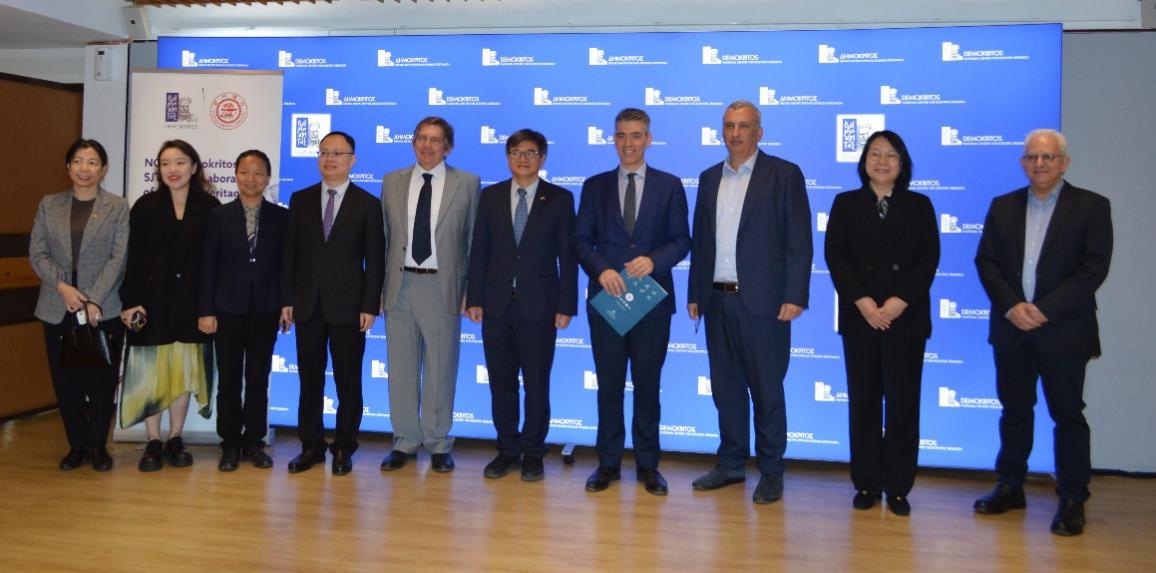
In his welcome speech, Dr Karkaletsis reviewed the expanding cooperation of recent years and stressed that the Joint Laboratory will integrate the two partners’ top-tier research forces, launch deeper joint programmes and further intensify the dialogue between the two ancient civilisations in heritage conservation.
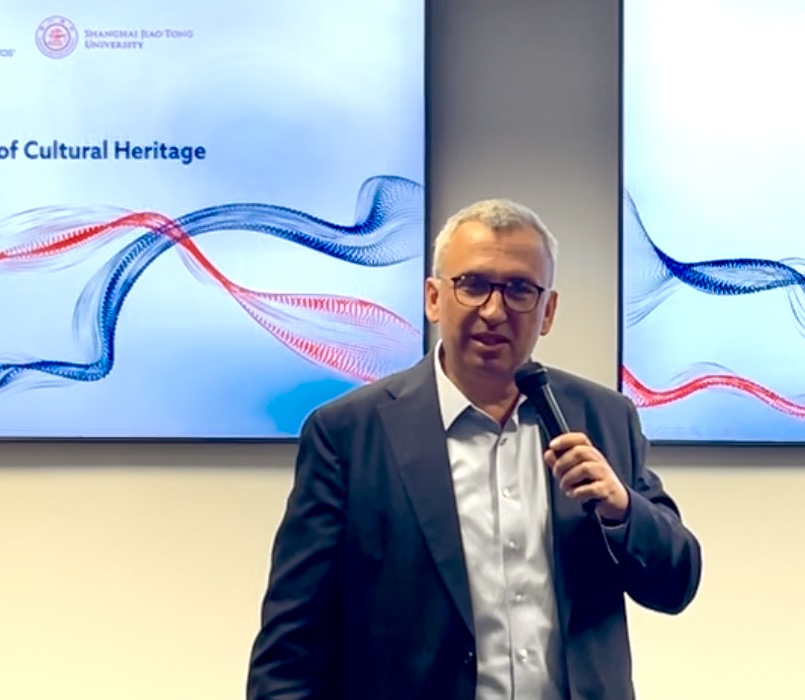
Mr Lai Bo noted that China and Greece have elevated their ties to a strategic partnership, marked by strengthened political trust, robust economic exchanges and vibrant people-to-people contacts. “As cradles of ancient civilisations, our collaboration in cultural heritage will sustain our traditional friendship, open new chapters of cooperation and inject lasting impetus into bilateral relations,” he said.
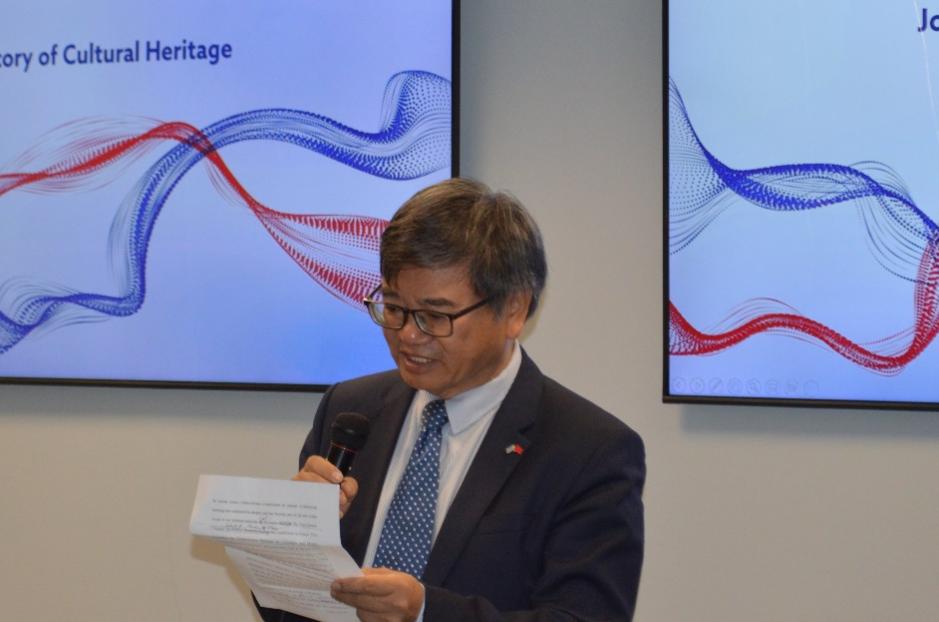
Vice-President Liu Weidong underlined that interdisciplinary development is a core driver of SJTU’s research innovation and talent training. “The inauguration will not only create new highlights in cutting-edge interdisciplinary studies, but also energize comparative research and civilisational dialogue between China and Greece,” he added.
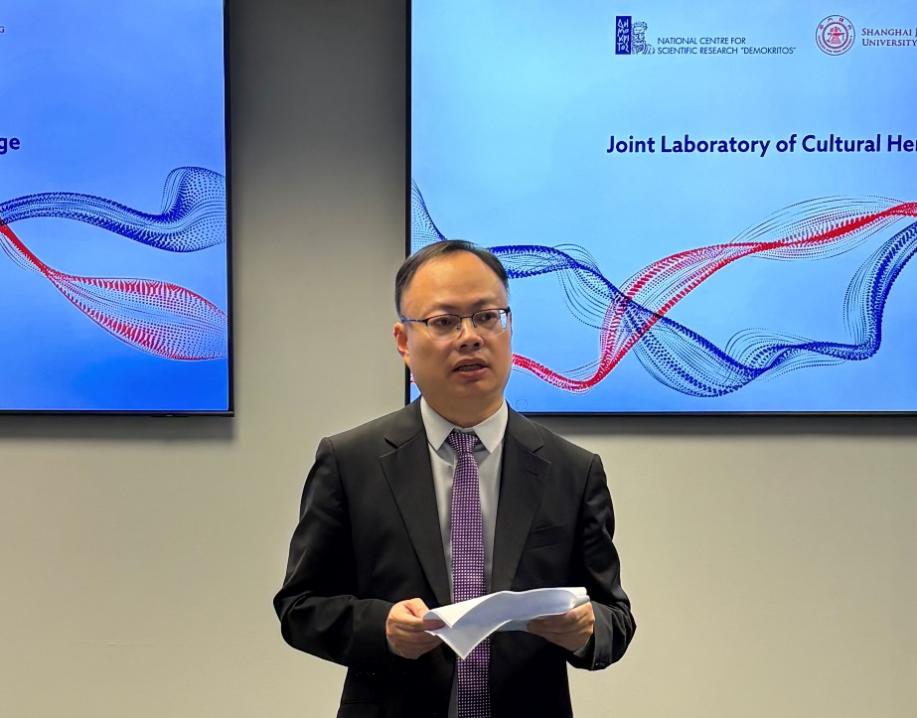
Dr Christos Markou and Ms Qi Hong, representing the initiating and executive bodies, pledged sustained support for the Joint Laboratory through scholar exchanges, student mobility and other programmes to cultivate heritage professionals who combine solid humanistic literacy, rigorous scientific competence and a global vision, thereby contributing wisdom to the mutual learning of world civilisations.
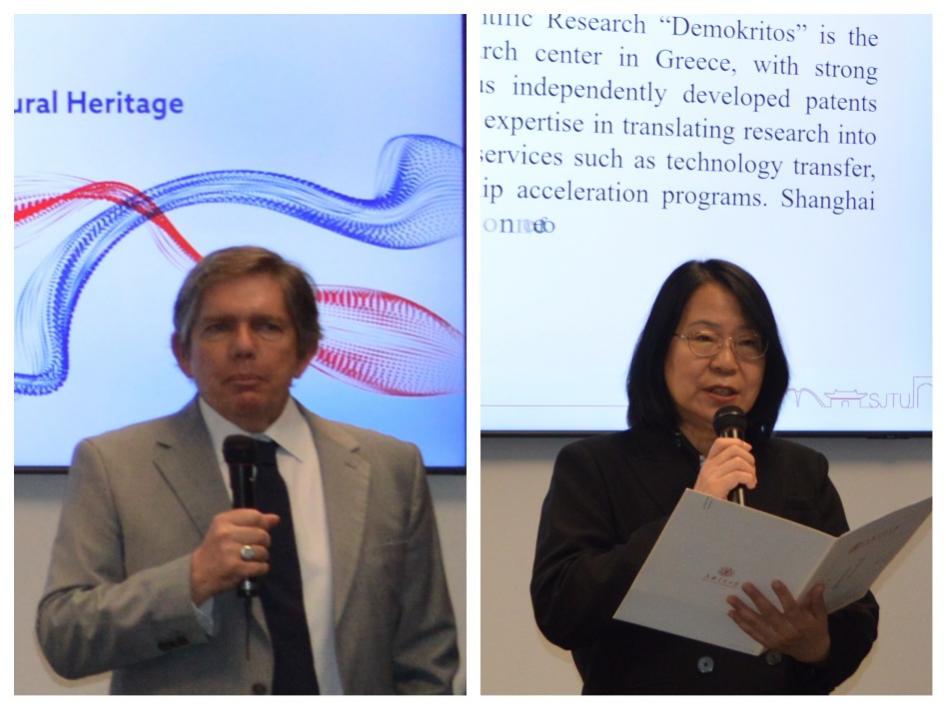
Secretary-General Gaitanis congratulated the founders and expressed confidence that the Joint Laboratory will deepen the integration of science and culture, advance heritage preservation and dissemination, and further promote bilateral cooperation.
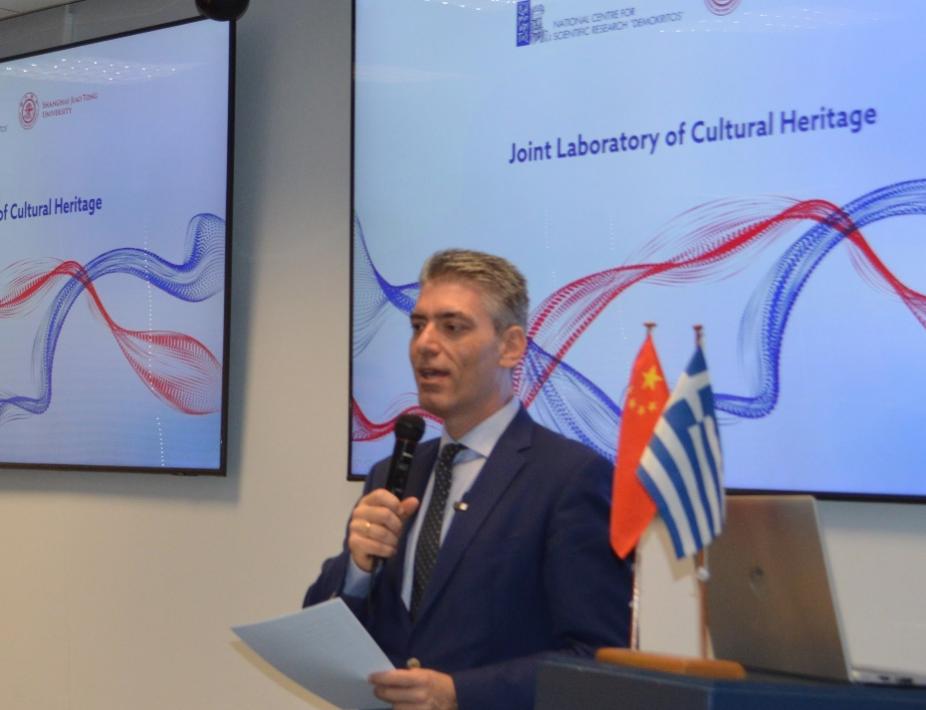
Director-General Maria Mertzani stated that the Laboratory will reinforce bilateral links and that the Greek Ministry of Culture will continue to support and participate in its activities to advance cultural exchanges.
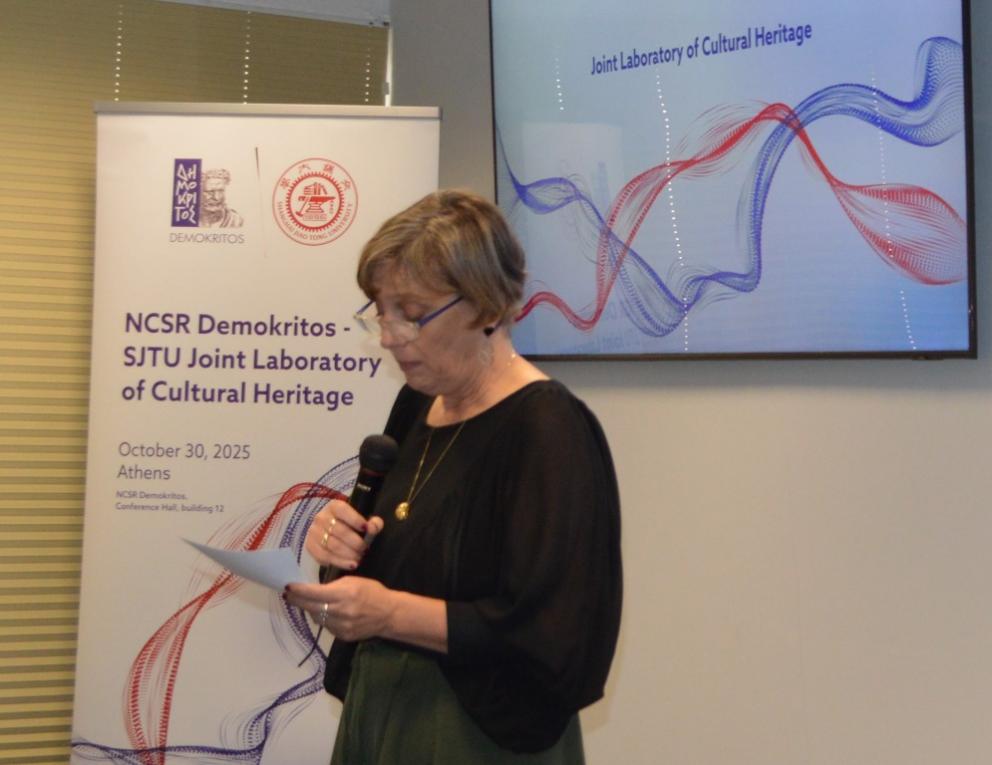
Dr Andreas Karydas (NCSR “Demokritos”, Greek Co-Director) and Associate Prof. Wen Yadi (SJTU School of Humanities, Chinese Co-Director) presented the Laboratory’s current status and development plan. Dr Karydas summarised past research, including the joint non-invasive analysis in March 2024 of 27 national-priority gold artefacts from Grave Circle A at Mycenae and Tiryns (ca. 18th–12th c. BCE) using portable X-ray fluorescence (pXRF) and micro-computed tomography (micro-CT), and an upcoming project involving more than 30 gold objects from the Hellenistic period (4th–1st centuries BCE). He highlighted Demokritos’ unique suite of ion-beam and synchrotron-based techniques that yield primary, high-resolution data for building reliable archaeometric databases.
Assoc. Prof. Wen Yadi outlined a sustainability roadmap that relies on Demokritos’ on-site laboratories, instrumentation and resident specialists, and on SJTU’s interdisciplinary strengths in materials science, archaeology and myth studies. Under the guidelines of China’s Ministry of Science and Technology for “China–Europe Joint Laboratories”, the partners will release major comparative archaeometric results that provide techno-scientific evidence for millennia-long exchanges along the Silk Road. The Joint Laboratory will operate as an open platform through which museums, archaeological institutes and universities worldwide can access primary datasets and launch international cooperation. By merging Demokritos’ computational technologies with SJTU’s artificial-intelligence expertise, the partners will create a series of immersive digital exhibitions on China–Greece cultural heritage to be toured in major museums; ticket revenues will be reinvested to secure long-term financial sustainability.
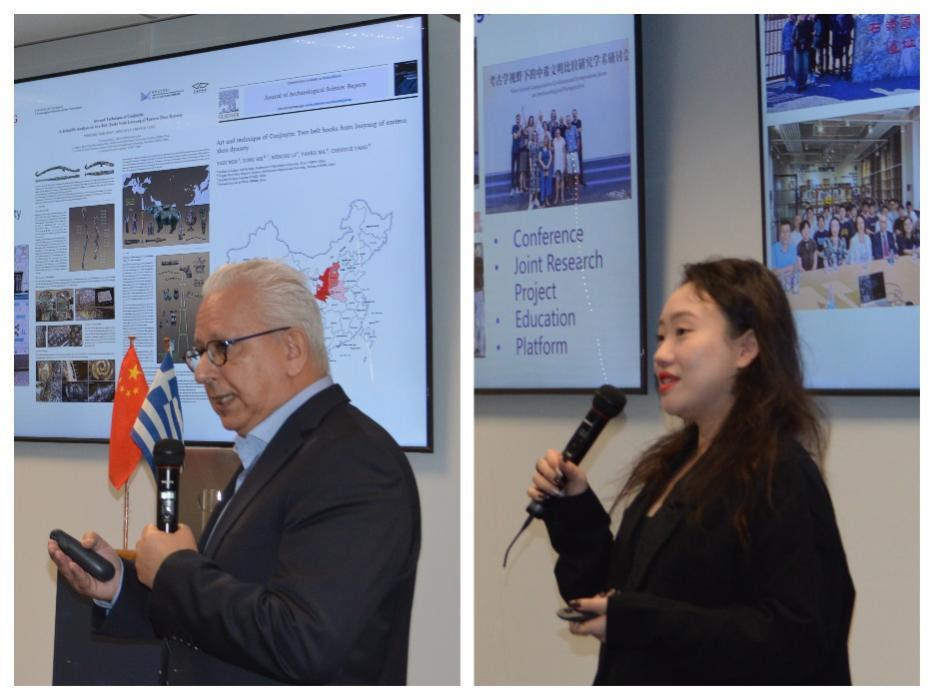
Dr Markou and Ms Qi Hong jointly unveiled the plaque, after which guests toured the newly established facility.
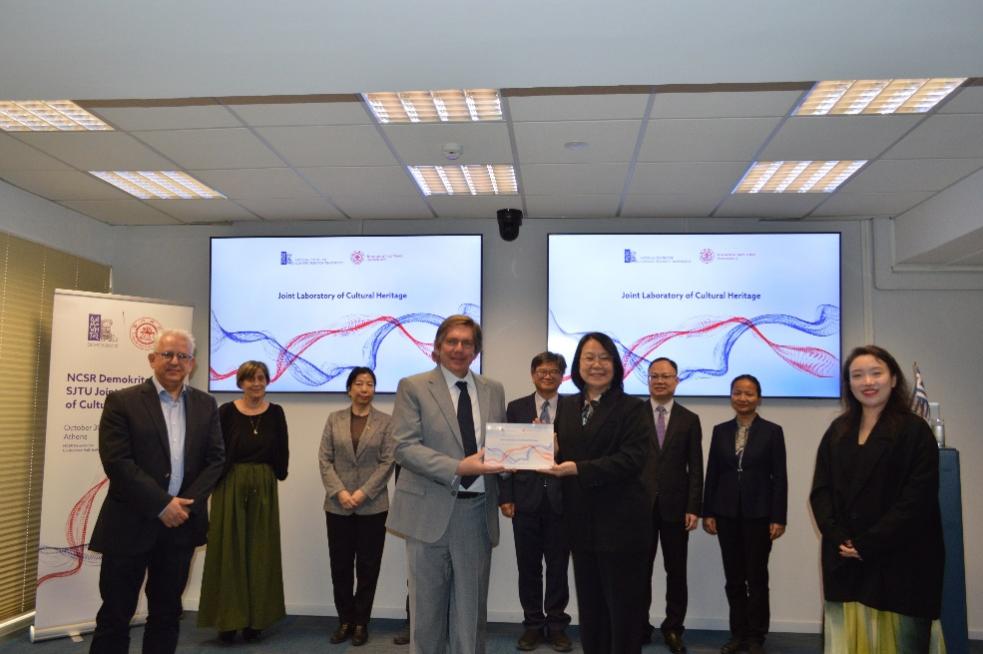
After the ceremony, the guests toured the Joint Laboratory to gain first-hand insight into its facilities and ongoing work.
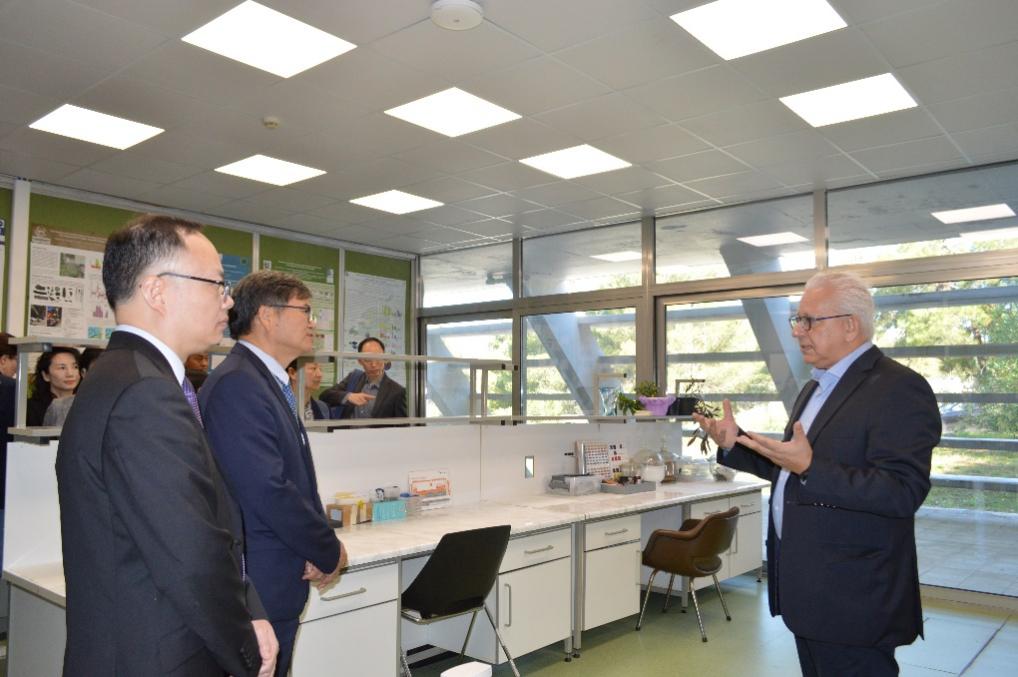
A Greek proverb says, “Land divides the world, but the sea unites it.” The dialogue between China and Greece embodies the enduring logic of trans-Eurasian exchange. Under the personal impetus of the two heads of state, collaboration in cultural heritage, archaeology, museum exhibitions and humanities has flourished. The Joint Laboratory will become a signature project, propelling cooperation between the two ancient civilisations and offering a paradigm for heritage science in the 21st century.
Article: School of Humanities, Shanghai Jiao Tong University
Translated by: Rebecca
Proof: Steven

